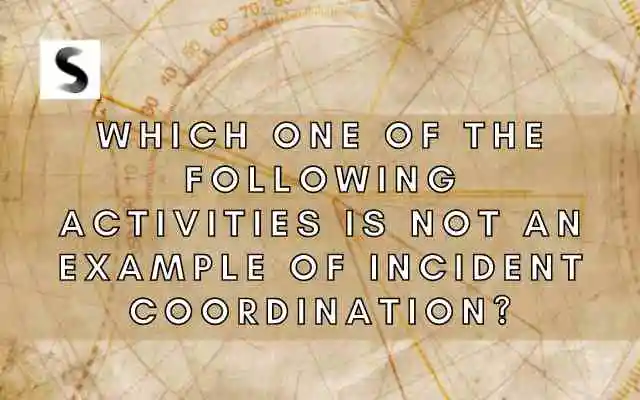Understanding Incident Coordination
First off, let’s put some skin on the bones of what incident coordination means. It’s a process of managing tasks, resources, and people during unexpected events or crises to bring about the best possible outcome.
Core Aspects of Incident Coordination
For effective incident coordination, taking care of certain key factors is essential. There’s the obvious need for communication and information dissemination, resource management, and decision-making processes. Let’s give a closer look at these core activities.
Communication and Information Dissemination
One of the main reasons things go belly up in times of crisis is miscommunication or lack of it. Keeping everyone informed and on the same runner is pivotal.
Resource Management
Juggling resources efficiently is another vital aspect of incident coordination. Knowing where and how to allocate resources best can make or break the response to a crisis.
Decision-Making Processes
Quick, accurate decisions are the name of the game in incident coordination. Hesitation or procrastination can often result in a snowball effect of problems.
The Odd One Out: Which Activity Doesn’t Belong?
Let’s check out the activity that doesn’t quite fit into the incident coordination framework.
Activities in Incident Coordination
Incident Analysis
The incident analysis involves:
- The examination of the event in detail.
- Establishing the facts.
- Determining the causes.
- Identifying what could be improved.
Resource Allocation
Resource allocation involves deciding how to distribute available resources to handle the situation effectively.
Crisis Communication
Crisis communication is about transmitting the correct information to the right people at the right time.
Incident Prediction
This is a tricky one. Incident prediction involves anticipating future incidents based on past data and trends. But hang on a sec; something seems a little fishy here…
Team Training
Team training equips the team with the necessary skills and knowledge to handle the incident effectively.
Spotting the Odd One Out
While all these activities seem integral to the process, Incident Prediction doesn’t fit into the jigsaw of incident coordination. Why, you ask? While predicting incidents can be valuable in preventing crises, it’s not part of the coordination process itself. The coordination starts after an incident has occurred. Thus, this activity sticks out like a sore thumb in our list of incident coordination activities.
Conclusion
So, there we have it! Hopefully, we’ve put to rest any lingering confusion around the question: “Which one of the following activities is not an example of incident coordination?” Remember, while all activities are essential in handling an incident, some play a more direct role in the coordination process than others. Like a chameleon in a bag of Skittles, incident prediction, though valuable, is separate from the core coordination activities.
Incident coordination is indeed a challenging task, but understanding its facets and the activities that are not part of it can help make this complex process a bit simpler. Stay curious, keep asking questions, and never stop learning!
FAQs:
What is incident coordination?
Incident coordination involves managing tasks, resources, and people during unexpected events or crises to achieve the best possible outcome.
What are some critical aspects of incident coordination?
Communication and information dissemination, resource management, and decision-making processes are core aspects of incident coordination.
Why is an incident prediction not a part of incident coordination?
While predicting incidents can help prevent crises, it is not part of the coordination process. Incident coordination starts after an incident has occurred.
Can incident prediction help in incident coordination?
Certainly! Although it’s not part of the coordination process, incident prediction can help organizations prepare for potential crises, making the coordination process smoother.
Is team training a part of incident coordination?
Absolutely! Training teams ensure they are well-equipped to handle incidents effectively, contributing to successful incident coordination.
How important is communication in incident coordination?
Communication is critical in incident coordination. It ensures that everyone is informed and on the same page, thereby preventing miscommunication that could worsen the crisis.
